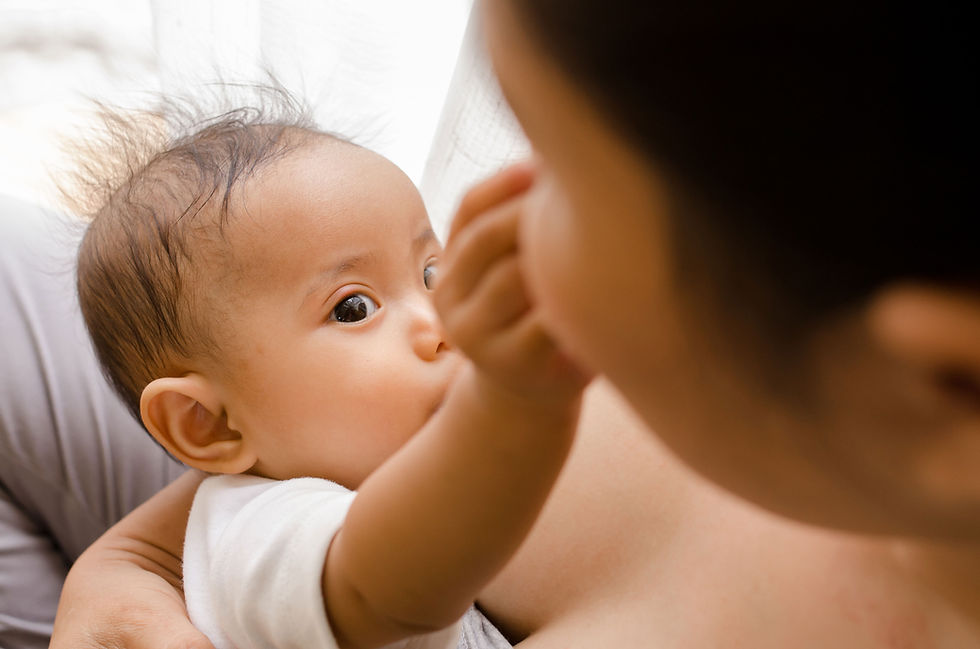Does Low Iron Cause Sleep Issues in Toddlers
- Adela

- Nov 13, 2025
- 3 min read

As as a sleep consultant for babies, the parents I meet have often tried all sorts of tips and tricks to help baby sleep better, only to find their attempts have amounted to minimal results. Recent research now shows that there is a link between low iron levels (iron deficiency anemia - IDA) and poor sleep in children.
What is Iron Deficiency Anemia?
An estimated 20-25% of children worldwide are deficient in iron, which is particularly impactful during a baby's critical initial years of brain growth. During this time, the body calls for increased iron intake. As such, infants with IDA are faced with physical and developmental challenges that are further exacerbated by poor sleep patterns. Accumulatively, this can have a long-term impact on a child's cognitive and behavioural growth.

Does iron deficiency affect baby sleep?
There has been research conducted by the University of Chile and the University of Michigan, which highlights the complicated relationship connecting iron and sleep. Major findings:
Sleep Spindles: Sleep spindles are brainwave activity occurring during non-REM sleep. This is important for memory consolidation and motor control. Babies with IDA have fewer sleep spindles and less frequent activity. This signifies possible interruptions in baby's brain development and sleep quality.
Sleep Patterns: Babies with IDA have a tendency to nap longer during the day and have broken sleep at night. They also spend less time in deep sleep (Non-REM sleep) overnight.
Motor Activity: Actigraphy studies have shown children with IDA are more active in their sleep, thereby resulting in more night wakings and poorer quality of sleep. These irregular sleep patterns negatively impact cognitive and emotional development.

How Does Low Iron Impact Toddler Sleep?
When babies who used to have IDA get older, even after iron levels are corrected, they can exhibit sleep imbalances:
REM Sleep: In a study, four-year-olds who had infancy IDA showed that earlier in the night, REM sleep cycles were longer than REM sleep in the second part of the night. Natural sleep cycles don't have this imbalance.
First Sleep Cycle: Children with infancy IDA will grow up and may still have shorter deep sleep cycles (non-REM) in their first sleep cycle, along with a shorter latency to REM sleep. These changes may signify the long-lasting impact of IDA on how the brain controls sleep.

What are the behaviors of a child with low iron?
The link between iron deficiency and sleep gives insight into how nutrition can affect physical health and impact the quality of sleep and brain growth. When young children and infants suffer from poor sleep, they can exhibit behavioural shifts:
Increased irritability
Moodiness
Reduced attention span
Hyperactivity
Learning challenges
Memory difficulties
When iron deficiency is addressed in the early infant years, it can help children better develop and grow.

How to recover iron deficiency in babies?
Adequate iron levels support children's physical health and sleep patterns. Some ways to ensure your child receives enough iron:
Iron-Rich Foods: lean meats, spinach, lentils, beans, and fortified cereals. Try to pair these iron-rich foods with vitamin C-rich foods such as oranges or tomatoes to increase absorption.
Monitor Symptoms: fatigue, pale skin or irritability are signs that your child may need medical attention
Supplements: children diagnosed with IDA may be advised to take iron supplements. Be sure to follow doctor's guidance to avoid excessive iron intake and side effects.

Iron deficiency and sleep problems
Iron is a key player in your child's growth and development, including your child's sleep quality. If you've made efforts to establish healthy sleep habits but to no avail, iron levels may be a factor. If iron levels were low, addressing this critical nutrient can help your child sleep better now and in the future.
Reference Peirano, P. D., Algarín, C. R., Chamorro, R. A., Reyes, S. C., Durán, S. A., Garrido, M. I., & Lozoff, B. (2010). Sleep alterations and iron deficiency anemia in infancy. Sleep Medicine, 11(7), 622–629. https://doi.org/10.1016/j.sleep.2010.03.014




Comments